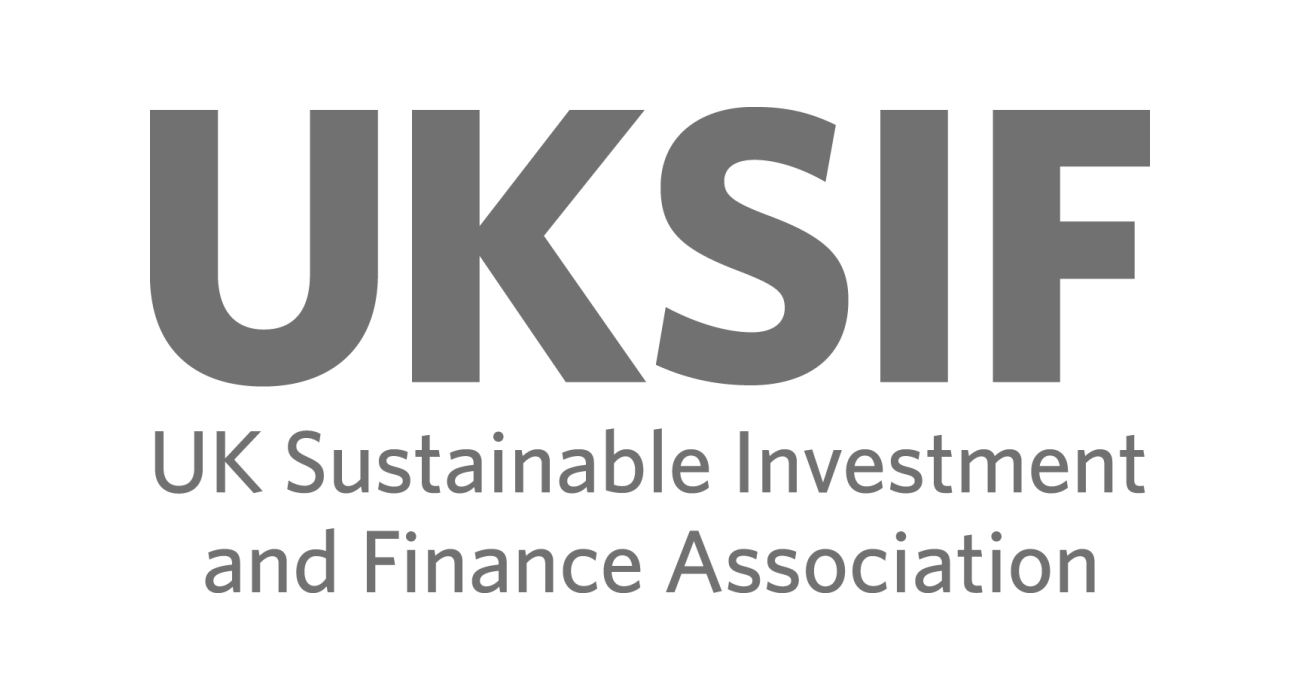|
Policy for National Energy Systems |
Chair: William Blyth Hon Research Fellow, Imperial College New Seminar Room |
|
14.30 |
A meta-analysis of the capability and performance of the energy innovation system in 40 countries. Dr Fionn Rogan, Energy Policy and Modelling Group, University College, Cork |
|
15.00 |
A Fit-For-Purpose energy policy for the European Union. Dr Maria Carvalho, Grantham Research Institute, LSE
|
|
15.30 |
Innovation and the governance of energy industry codes. Dr Matthew Lockwood, University of Exeter Energy Policy Group |
|
Regulation & Policy for the Power Sector |
Chair: Jonathan Thurlwell, Managing Principal, IPA Prestwich Seminar Room |
|
14.30 |
The role of regulation in supporting transformative change in the energy market. Martin Crouch, Ofgem |
|
15.00 |
Innovation incentive for regulated network industries. Dr Rahmat Poudineh, Oxford Institute for Energy Studies, University of Oxford
|
|
15.30 |
Has the Low Carbon Network Fund been successful at stimulating innovation in the electricity networks? Dr Aidan Rhodes, Imperial College London |
|
Innovation & Disruption in Fossil Fuel Markets |
|
Chair : Dr Anouk Honore, OIES, University of Oxford Larkin Seminar Room |
|
14.30 |
Drivers and Hurdles for Gas Market Integration in Europe: Evidence from the Belgium-Luxembourg Pilot Market Merger Project. Chris Cuijpers, Commission for Electricity and Gas Regulation (CREG) |
|
15.00 |
Studying Boom-Bust Cycles in Natural Gas Production Assets Investments. Joël Enderlin, ENGIE Strategy Division |
|
15.30 |
How Can the North Sea Oil and Gas Industry be Revived? Prof Alex Kemp, University of Aberdeen |
|
Innovation Systems and the low carbon transition |
Chair: Tom Jennings, Carbon Trust Auditorium |
|
14.30 |
Path dependence & path creation: roles for incumbents in the low carbon transition? Prof Peter Pearson, Imperial College, London |
|
15.00 |
The role of State Investment Banks in enabling low-carbon technological change. Anna Geddes, ETH Zurich |
|
15.30 |
The drivers for China’s wind energy technology innovation system. Rui Hu, Imperial College, London |
|
Power Systems and Balancing |
Chair: Seb Henbest, Bloomberg New Energy Finance North Seminar Room |
|
14.30 |
Innovative Business Models to Meet Grid Challenges. Dr Luke Peck, Limejump Ltd |
|
15.00 |
Integrating supply and demand: smart systems; storage. Eamonn Boland, Baringa Partners
|
|
15.30 |
The impact of tightening margins on plant availability. Dr Amy O’Mahoney, Ofgem |
|
16:00 |
Tea
|
|
16:30- 18:00 |
Second Parallel Session
|
|
Rethinking Energy Demand |
Chair: Prof Steve Sorrell, University of Sussex Auditorium |
|
16.30 |
Energy trilemma for the 21st century. Ian Marchant, Dunelm Energy |
|
17.00 |
The energy ladder: A model for projecting energy demand. Dr Tashi Erdmann, Shell Global Solutions International |
|
17.30 |
Rebound effect for energy services: the case of UK households. Dr Mona Chitnis, University of Surrey |
|
Does it matter who owns the energy system? |
16.30 |
North Seminar Room Dialogue session led by Dr Alaa Owaineh, University of Surrey with Prof Tim Foxon, University of Sussex, Dr Stephen Hall, University of Leeds and Dr Francis Li, UCL |
|
A transition to a low carbon energy system will require high levels of innovation both in technologies and in the governance of energy systems, which is likely to disrupt existing business models and incentives structures. Drawing on research from an EPSRC-funded project ‘Realising Transition Pathways: Whole systems analysis for a UK more electric low carbon energy future’, this session will examine the current and future impact of different forms of ownership on low carbon pathways for the UK electricity and wider energy system. |
|
How Many Energy Models should be Developed, Maintained and Applied to Decision Making? |
16.30 |
Prestwich Seminar Room Dialogue session led by Prof Neil Strachan, UCL with Prof Goran Strbac, Imperial College London, Marianne Zeyringer, University College London, Dr Zenaida Sobral Mourao, University of Cambridge |
|
Countries around the world are beginning the process of profoundly restructuring their energy systems to meet an interlinked set of policy goals; notably low carbon, secure and affordable energy supply. Decision makers across industry, government, and wider society needs to make key decisions in the light of this evolving landscape. |
|
Student Presentations and Networking |
Chair: Dr Peter Connor: University of Exeter Garden Quad Reception Room |
|
16.40 -18.00 |
Short presentations of student’s research topics, followed by themed discussions with other students and established academics. |
|
|
How can power utilities restructure their resource base in order to survive anticipated discontinuous change due to technological innovations in the industry? Morten Ansteensen. Norwegian University of Science and Technology, Norway |
|
|
|
Heating systems in buildings for the security of stability of the European electric power system. Pirmin Boch. University of Hohenheim, Germany |
|
|
|
Local government and energy infrastructure: Discourses of the state in city approaches to heat networks. Jessica Britton, University of Exeter
|
|
|
|
Call for Energy Governance in EU-Russia Gas Relations: Legal Solution to a Geopolitical Problem? Natasha Georgiou, University of Reading |
|
|
|
Biofuels for Food – A spatial PEM approach to determine when the production of biofuel increases that of food crops. Niklas Hinkel, University of Cologne, Germany |
|
|
|
Energy Infrastructure Financing and Project Finance (Nigerian Energy Sector as a Case Study). Nasir Kolade, University of The West of Scotland
|
|
|
|
An Empirical Analysis of Energy Demand in Sub-Saharan Africa (1980-2014). Aisha Kolawole, Oxford Brookes University |
|
|
|
The Impact of Demand Side Management on the Wholesale Prices of the British Electricity Market, Sara Lupo, University of Edinburgh |
|
|
|
Geo-economical Conflict between Russia and the EU over the Gas Market Regime. Nikita Odintsov, Charles University in Prague – Faculty of Social Sciences, Czech Republic |
|
|
|
Facing the Climate and Digital Challenge: European Energy Industry From Boom to Crisis and Transformation. Proadpran Boonprasurd Piccini, BI Norwegian Business School, Norway |
|
|
|
Assessment of the innovation potential and possible future costs of energy storage technologies. Oliver Schmidt. Imperial College London, United Kingdom |
|
|
|
Risk premia in electricity spot markets – New empirical evidence for Germany and Austria. Niyaz Valitov, University of Wuppertal, Germany |
|
18:30 |
Drinks Reception
|
|
19:30 |
Conference Dinner, St John’s College Dining Hall
|
|
|
 “I know the world’s dominant energy technology for the 21st century.” Discuss. After Dinner Speaker Sir Edward Davey , Former Secretary of State for Energy and Climate Change “I know the world’s dominant energy technology for the 21st century.” Discuss. After Dinner Speaker Sir Edward Davey , Former Secretary of State for Energy and Climate Change |
|
|
|
|
|
|
|
|
DAY 2 Thursday September 22 2016
|
|
08.00 – 8.45 |
Breakfast (College Residents) St John’s College Dining Hall
|
|
08:30 |
Registration
|
|
|
(Single Day Delegates) Garden Quad Registration Desk |
|
09.00 |
Welcome
|
|
|
Auditorium |
|
|
Prof Richard Green, BIEE Chair |
|
09:05 |
Keynote Address
|
|
|
Towards a new energy sector: The role of financial innovation |
|
|
 Dr. Barbara Buchner, Executive Director, Climate Policy Initiative Dr. Barbara Buchner, Executive Director, Climate Policy Initiative
|
|
09:30 |
Second Plenary Session: New Opportunities, New Business
|
|
|
Chair: Martin Haigh, Shell Scenarios Team |
|
09.30 |
Business Models for Future Energy Systems |
|
|
 Michael Pollitt, Prof of Business Economics, Judge Business School, University of Cambridge Michael Pollitt, Prof of Business Economics, Judge Business School, University of Cambridge |
|
|
Community is the new Corporate ‘Or the art of bike riding!’ |
|
09.50 |
 Volker Beckers, Chairman, Albion Community Power Volker Beckers, Chairman, Albion Community Power |
|
|
Reality vs rhetoric: what business models work now and what has to change |
|
10.10 |
 Sara Bell, CEO and Founder, Tempus Energy Sara Bell, CEO and Founder, Tempus Energy |
|
10.30 |
Questions and Discussion |
|
10.55 |
The Energy Catalyst – accelerating innovation to commercialisation |
|
|
Michael Priestnall, Lead  Technologist Energy , Innovate UK Technologist Energy , Innovate UK
|
|
11.00 |
Coffee
|
|
11.30 |
Third Parallel Session
|
|
Government policy to stimulate sustainable energy innovation |
11.30 |
New Seminar Room Dialogue session led by Dr Matthew Hannon, University of Strathclyde with Dr Paula Kivimaa, SPRU, University of Sussex, Ajay Gambhir, Grantham Institute, Imperial College London, Dr Elizabeth Milsom, DECC, Dr Paul Westacott, Origami Energy, Dr Charlie Wilson, Tyndall Centre for Climate Change Research, University of East Anglia
|
|
|
In the face of mounting environmental, energy security and economic pressures there is a growing demand for alternative energy technologies and business models that can satisfy our energy needs in a cleaner, cheaper and more secure fashion. Whilst energy innovation is by no means a new process we still remain unclear about the best way to stimulate sustainable energy innovation. With increasingly little time to meet our 2050 carbon reduction target, dwindling domestic fossil fuel reserves and concerns that oil prices will soon rebound it is essential that the correct policy mechanisms are put in place today to ensure that the energy technologies and business models of tomorrow are commercially viable and enjoy wide-scale deployment. |
|
Socio-Environmental Influences on Low Carbon Innovation |
Chair: Adrian Gault, Committee on Climate Change Prestwich Seminar Room |
|
11.30 |
The next big thing or too big for us? New business models for renewable energy cooperatives – barriers in the perception of cooperatives’ members. Prof Carsten Herbes, Nuertingen-Geislingen University |
|
12.00 |
Renewable energy deployment and costs in the UK: spatial analysis taking into account policy, social and environmental land use constraints. Marianne Zeyringer, UCL Energy Institute |
|
12.30 |
Political Power and the Development of UK Domestic Heat Policy. Richard Lowes, University of Exeter |
|
Developments in Energy Storage |
Chair: Ronan O’Regan, Director, Renewables, PwC Auditorium |
|
11.30 |
Optimal Storage Investment and Management under Uncertainty – It is costly to avoid outages! Dr Joachim Geske, Imperial College Business School |
|
12.00 |
Accelerating energy storage innovation – what is needed and how can it be achieved? Prof Peter Taylor, University of Leeds |
|
12.30 |
How disruptive could storage be? Dr Phil Grunewald, ECI, University of Oxford |
|
Opportunities for Demand Response |
Chair: Matthew Leach, University of Surrey Larkin Seminar Room |
|
11.30 |
Smart technologies in the domestic and SME sectors: evidence and policy options. Dr Peter Warren, Department of Business, Energy & Industrial Strategy |
|
12.00 |
Integrating wind power into the UK energy mix through dynamic demand-side response. Matthew Gross, University of Sussex |
|
12.30 |
Peak demand, price elasticity and intrinsic flexibility from time use activities. Dr Jacopo Torriti, University of Reading |
|
Innovation in Policy |
Chair: George Day, Energy Technologies Institute North Seminar Room |
|
11.30 |
Governing for Innovation Without Disruption in Energy Systems. Prof Catherine Mitchell, University of Exeter Energy Policy Group |
|
12.00 |
An empirical exploration into the role of phase-out policies for low-carbon energy transitions: the case of the German Energiewende. Dr Karoline Rogge, University of Sussex. |
|
12.30 |
Future perspectives on policy instruments and market coupling for integration of RES-e in regional supergrids. Dr Catalina Spataru, UCL Energy Institute |
|
|
|
|
|
13:00 |
Lunch
|
|
14:00 |
Third Plenary Session: Facilitating the Transition
|
|
|
Auditorium |
|
|
Chair: Dr Rob Gross, Director, ICEPT, Imperial College |
|
|
Facilitating the energy transition in six conceptual slides |
|
14:00 |
 Michael Grubb, Prof of International Energy and Climate Policy, UCL, and Ofgem Michael Grubb, Prof of International Energy and Climate Policy, UCL, and Ofgem |
|
14:20 |
A Green Mission-Oriented Industrial Strategy |
|
|
 Mariana Mazzucato, Prof of Economics of Innovation, SPRU, University of Sussex Mariana Mazzucato, Prof of Economics of Innovation, SPRU, University of Sussex |
|
|
Policy for a Low Carbon Economy |
|
14:40 |
 Adrian Gault, Chief Economist The Committee on Climate Change Adrian Gault, Chief Economist The Committee on Climate Change |
|
15:00 |
Questions and Discussion |
|
15.25 |
Closing Remarks |
|
15:30 |
BIEE Annual General Meeting
|
|
15:45 |
Tea
|
|
16:00 |
Finish
|
 Charles Hendry, Former Energy Minister, BIEE President
Charles Hendry, Former Energy Minister, BIEE President Dr Angela Strank, Chief Scientist and Head of Technology, Downstream Segment, BP plc
Dr Angela Strank, Chief Scientist and Head of Technology, Downstream Segment, BP plc James Leaton, Research Director, Carbon Tracker Initiative
James Leaton, Research Director, Carbon Tracker Initiative Richard Hepworth, Director, Digital Transformation , PwC
Richard Hepworth, Director, Digital Transformation , PwC “I know the world’s dominant energy technology for the 21st century.” Discuss. After Dinner Speaker Sir Edward Davey , Former Secretary of State for Energy and Climate Change
“I know the world’s dominant energy technology for the 21st century.” Discuss. After Dinner Speaker Sir Edward Davey , Former Secretary of State for Energy and Climate Change  Dr. Barbara Buchner, Executive Director, Climate Policy Initiative
Dr. Barbara Buchner, Executive Director, Climate Policy Initiative Michael Pollitt, Prof of Business Economics, Judge Business School, University of Cambridge
Michael Pollitt, Prof of Business Economics, Judge Business School, University of Cambridge Volker Beckers, Chairman, Albion Community Power
Volker Beckers, Chairman, Albion Community Power Sara Bell, CEO and Founder, Tempus Energy
Sara Bell, CEO and Founder, Tempus Energy Technologist Energy , Innovate UK
Technologist Energy , Innovate UK Michael Grubb, Prof of International Energy and Climate Policy, UCL, and Ofgem
Michael Grubb, Prof of International Energy and Climate Policy, UCL, and Ofgem Mariana Mazzucato, Prof of Economics of Innovation, SPRU, University of Sussex
Mariana Mazzucato, Prof of Economics of Innovation, SPRU, University of Sussex Adrian Gault, Chief Economist The Committee on Climate Change
Adrian Gault, Chief Economist The Committee on Climate Change













Post your comments and questions for the speakers here